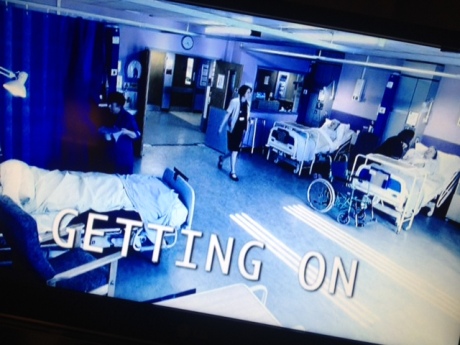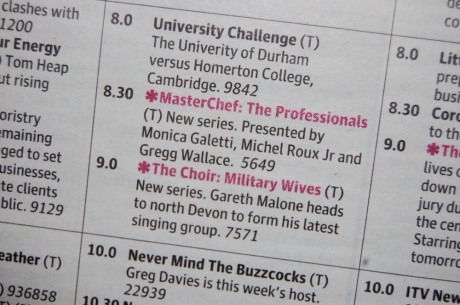In a TV schedule overrun with procedural crime dramas, reality shows and Jack Whitehall, Getting On was all too easy to miss. But for those who did catch the third series on BBC Four last year, they’ll have enjoyed a superbly dark and very funny sitcom.
I’ll pause while the blogosphere shouts in unison “there’s a BBC Four?!?” and goes to dig out an old TV guide from the recycling bin.
Are you back? Good.
I’m just teasing of course, but when flicking through the channels it’s very easy to lose all will to live when you reach BBC Three and decide your TV would be better off buried in the back garden alongside Gnasher the hamster. With your ex-flat screen pushing up the daisies, you’ll miss out on all of BBC Four’s gems.
Set in an NHS hospital, Getting On revolves around the staff and patients in a care of the elderly – geriatric – ward. It’s primarily told from the point of view of the nurses and ward sisters, which is quite refreshing given how often TV shows set in the medical world focus on doctors.
Much of the humour arrives from the bureaucracy and politics of the NHS where new initiatives are constantly being dreamt up to distract the staff from patient care. And yet whilst this could make for a very cynical show, it can be incredibly warm and tender.
This is largely due to the interplay between the excellent leads; Jo Brand, Joanna Scanlan and Vicki Pepperdine – who also share the writing credits. There are some heart-wrenching scenes, though as I mentioned earlier, the sadness is often played to darkly coming effect – perhaps inevitable given the setting.
Yet, there are two potential barriers to getting on with Getting On.
One: it’s so blue.
In appearance that is, not language. Whilst the colour palette of washed out blues does mirror the aging population of the ward, I’d prefer it if things looked a little brighter.
Two: shakey-cam.
Shot with handheld cameras there are lots of jump-cuts and random zooms. I watched an episode after an evening in the pub and the two pints of ale resting in my stomach suddenly felt like half a bottle of whiskey.
Having said that, whilst it does take me a moment to get used to the above as I sit down to each episode, I soon forgot and become totally engrossed. What’s more, Getting On is further proof that Jo Brand is a national treasure.
Whilst the series isn’t on the box at present, you can pick up DVDs or download episodes from the usual suspects.




